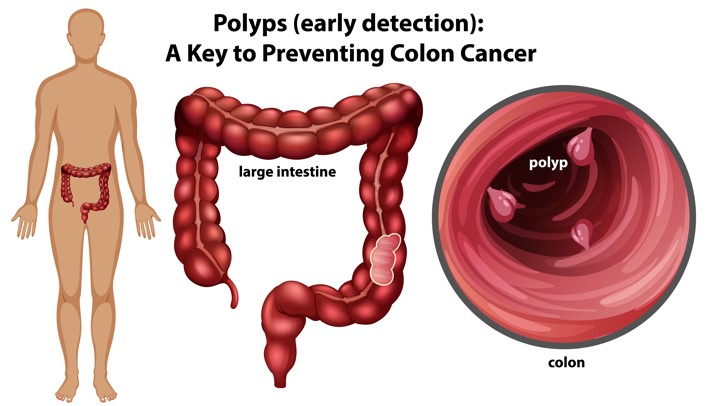Colon Cancer Survival Calculator
Calculate your colon cancer survival probability with our free tool. Understand prognosis factors and get personalized health recommendations.
Check More Free Tools:


Free Colon Cancer Survival Calculator – Assess Your Prognosis & Recovery Chances
Colon cancer develops when abnormal cells grow uncontrollably in the colon or rectum. As the third most common cancer worldwide, it accounts for over 1.9 million new cases annually. Early detection dramatically improves survival rates – while Stage I has a 90% 5-year survival rate, Stage IV drops below 15%. This underscores why understanding your personal prognosis through our colon cancer survival calculator is critical for treatment planning and peace of mind.
Key Symptoms You Should Never Ignore
Colon cancer often develops silently, but these warning signs demand medical attention:
Persistent bowel changes: Diarrhea/constipation lasting >2 weeks
Rectal bleeding or bloody stools
Unexplained weight loss (>5% body weight in 6 months)
Chronic abdominal discomfort: Cramps, gas, or pain
Iron-deficiency anemia without obvious cause
Note: 45% of patients report no symptoms in early stages – screening is essential.
Diagnosis: How Doctors Detect Colon Cancer
Diagnostic Procedures Table
MethodPurposeDetection RateColonoscopyVisual examination of entire colon>95% for significant lesionsFIT TestDetects hidden blood in stool79% for cancerCT Colonography3D imaging of colon90% for large polypsBiopsyTissue analysis for cancer cellsConfirms diagnosisCEA Blood TestTumor marker monitoringTracks recurrence
Advanced molecular tests like MSI (Microsatellite Instability) and KRAS mutation analysis now guide personalized treatment plans.
Treatment Options: A Multidisciplinary Approach
1. Surgical Interventions
Polypectomy: Removal of precancerous polyps during colonoscopy
Colectomy: Partial/total colon resection (laparoscopic or open)
Lymph node dissection: Critical for staging accuracy
2. Medical Therapies
Chemotherapy (FOLFOX, CAPOX regimens for stages III-IV)
Radiation therapy: Primarily for rectal cancer
Targeted drugs (Anti-EGFR: Cetuximab; VEGF inhibitors: Bevacizumab)
Immunotherapy (PD-1 inhibitors for MSI-H tumors)
3. Emerging Treatments
CAR-T cell therapy clinical trials
Cancer vaccines targeting tumor neoantigens
Treatment selection depends on tumor location, molecular profile, and patient comorbidities.
Critical Prognostic Factors in Our Calculator
Our survival calculator incorporates evidence-based variables that directly impact outcomes:
Tumor Characteristics
Stage (I-IV): The strongest predictor
Tumor grade (Differentiation status)
Lymphovascular invasion
Metastatic sites (Liver/lung/peritoneum)
Patient Factors
Age: Survival decreases >10% per decade after 50
Performance status (ECOG scale)
CEA levels (>5 ng/mL worsens prognosis)
Genetic markers (APC, KRAS, TP53 mutations)
Lifestyle Modifiers
Nutritional status (Albumin levels)
Smoking history: Doubles recurrence risk
Exercise compliance: 30% survival boost with 150 mins/week activity
Using the Survival Calculator: A Step-by-Step Guide
Input demographics: Age significantly impacts chemotherapy tolerance
Detail medical history: Diabetes reduces 5-year survival by 17%
Enter tumor specifics: Stage and grade carry 70% weight in calculation
Add treatment data: Adjuvant chemo improves Stage III survival by 20%
Generate report: Color-coded risk assessment with personalized recommendations
Example calculation:
A 58-year-old male with Stage IIA (T3N0M0), moderate-grade tumor receiving surgery + chemo has an 80% 5-year survival probability.
Interpreting Your Results
Risk Stratification
Survival ProbabilityRisk LevelRecommended Actions>70%LowAnnual surveillance colonoscopy
CEA monitoring every 3-6 months40-70%ModerateConsider genetic counseling
Enhanced CT/MRI imaging schedule<40%HighClinical trial exploration
Palliative care consultation
Note: All results include personalized lifestyle prescriptions for diet, exercise, and stress management.
Prevention: Evidence-Based Strategies
Reduce your risk by 45% with these measures:
Screening compliance:
Start colonoscopies at 45 (earlier if family history)
Repeat every 5-10 years based on risk
Dietary modifications:
30g daily fiber intake (+20% protection)
Limit processed meats (WHO Group 1 carcinogen)
Chemoprevention:
Aspirin therapy* for high-risk patients (35% risk reduction)
Only under medical supervision
Frequently Asked Questions
Can colon cancer be cured completely?
Early-stage (I-II) colon cancer has cure rates exceeding 80% with surgery alone. Even Stage III shows 50-70% cure rates with multimodal therapy.
How accurate is the survival calculator?
Our algorithm incorporates SEER database parameters and AJCC 8th Edition staging criteria, achieving 88% concordance with clinical outcomes.
Does location within the colon affect survival?
Right-sided tumors have 15% lower 5-year survival versus left-sided due to molecular differences (more MSI-H, BRAF mutations).
Can lifestyle changes improve my prognosis?
Yes. Studies show patients with optimal BMI (18.5-25), regular exercise, and Mediterranean diet have 42% lower recurrence risk.
Take Control of Your Prognosis Today
Our free colon cancer survival calculator synthesizes complex medical data into actionable insights. By understanding your personalized risk profile, you can:
Make informed treatment decisions
Implement targeted prevention strategies
Advocate effectively with your care team
Early knowledge is your greatest weapon. Calculate your survival probability now and discuss the results with your oncologist.
